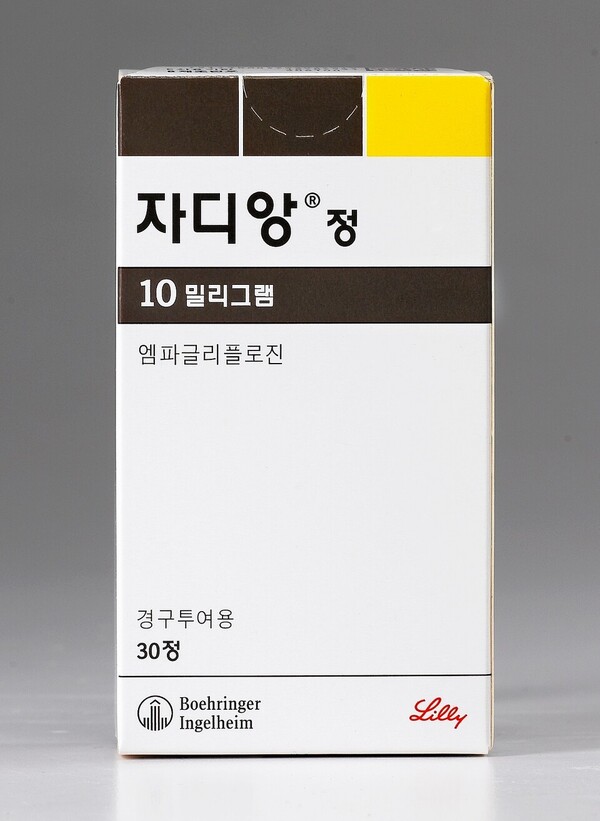
SGLT2 inhibitor Jardiance (empagliflozin) has become a triple-crown treatment option in Korea, adding chronic kidney disease to its existing list of indications of type 2 diabetes and chronic heart failure, following Forxiga (dapagliflozin).
Last Thursday, the Ministry of Food and Drug Safety (MFDS) approved Jardiance for treatment to "reduce the risk of progression of kidney disease or death from cardiovascular disease in patients with chronic kidney disease.
The approval enabled Jardiance to be used for treating patients with chronic kidney disease with or without type 2 diabetes in Korea, following the European Union and the United States, making it a drug that can treat three diseases -- type 2 diabetes, chronic heart failure, and chronic kidney disease.
Chronic kidney disease, estimated to affect one in nine adults in Korea, is associated with a 7.2 times higher risk of death than people without chronic kidney disease.
If not treated early and adequately, chronic kidney disease can lead to end-stage kidney disease (ESKD), a condition that increases the risk of death, so the treatment of chronic kidney disease is aimed at delaying the progression of the disease and ultimately reducing the incidence of end-stage renal disease.
The latest approval of indication is based on the results of the phase 3 EMPA-KIDNEY study, which evaluated the efficacy and safety of Jardiance in 6,609 adult patients with various underlying causes and comorbidities across the spectrum of chronic kidney disease severity, with and without type 2 diabetes. EMPA-KIDNEY included patients with lower urinary albumin/creatinine ratios (UACR), unlike previous SGLT2 inhibitor studies that focused on patients with higher UACRs.
The study met its primary endpoint with a 28 percent reduction in the relative risk of progression of kidney disease or death from cardiovascular causes compared to placebo. This effect was consistent across subgroups stratified by UACR, demonstrating a consistent treatment effect in patients with and without albuminuria.
A major secondary endpoint, the risk of first and repeat all-cause hospitalizations, was significantly reduced by 14 percent compared to placebo, resulting in a reduced hospitalization burden for patients with chronic kidney disease. Overall safety results were similar to the previously recognized safety profile.
"Amid limited existing treatment options for patients with chronic kidney disease at high risk of end-stage renal disease and cardiovascular mortality, we are very pleased to add a new treatment option based on solid evidence," said Shin So-young, vice president and head of medical affairs at Boehringer Ingelheim Korea.
Shin added that the company hopes this approval will enable Jardiance to provide clinical benefits to more patients and improve care as a key agent in the integrated management strategy for heart, kidney, and metabolic diseases.
Related articles
- Bayer's chronic kidney disease drug Kerendia passes drug review panel
- Baxter Korea launches Olimel, a multi-nutrient fluid, with insurance coverage on Oct. 1
- Dialysis society calls for tightening staffing standards for hemodialysis units
- Boehringer Ingelheim Korea initiates voluntary recall for COPD and asthma treatment

